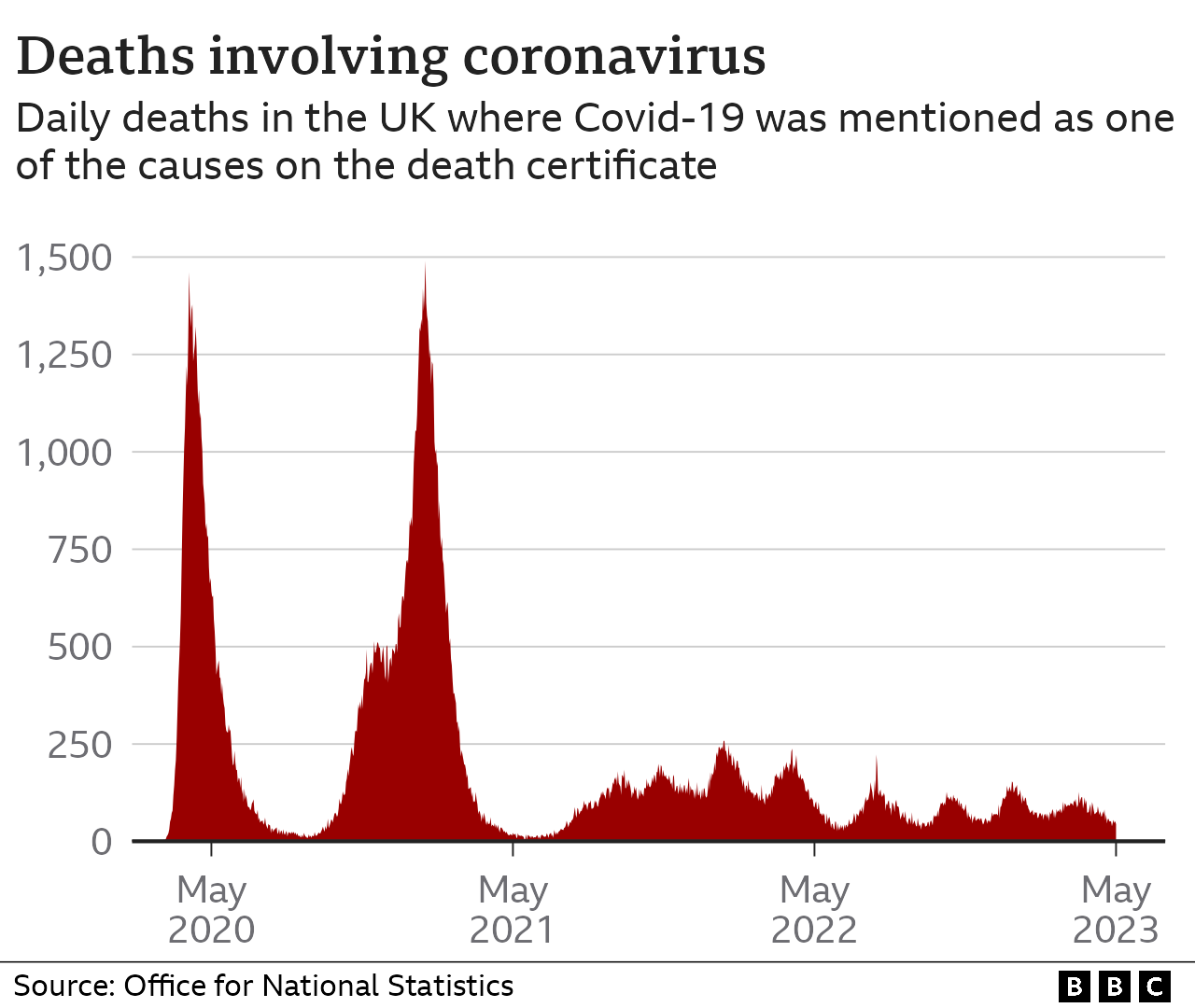According to the Department of Health and Social Care's attorney, the pandemic was a "confused period akin to war.".
The department had to make "finely balanced" decisions after being presented with a number of "hugely unpalatable options," according to Fiona Scolding KC.
She continued, "With the benefit of hindsight, some of those choices might have been different.".
The second day of the public inquiry into the UK's reaction to Covid has come to an end.
Key politicians, government employees, scientists, unions, health and care organizations, as well as organizations that represent victims and their families, will be interviewed during the first segment of the inquiry, titled Resilience and preparedness.
About 70 people are anticipated to voice their opinions on this matter over the course of the next six weeks.
The inquiry's chair, Baroness Hallett, stated there were three main questions on Tuesday, the first day of the inquiry.
- Was the UK ready in advance?
- Was the response suitable?
- What lessons can be applied going forward?
Hugo Keith KC, the inquiry's lead attorney, described the virus's "death, misery, and incalculable loss" while claiming that the UK may not have been "at all" well-prepared.
Ms. Scolding stated in her opening remarks on Wednesday that the government would not claim that its response to Covid was perfect.
"Contrary choices could have been rationally made, leading to a different set of outcomes," she said.
However, the pandemic had been "the biggest challenge the NHS and care sector had ever faced.".
Furthermore, it was crucial "to acknowledge the context of the time was very different from what we know now.".
Testing and diagnostics were a "significant weakness" in the early stages of the pandemic, in comparison to some other countries, according to Ms. Scolding, who urged the inquiry "not to impose a retroscope on decision making.".
According to Matthew Hill of the Government Office for Science, which also represents present and former chief scientific advisers, the UK had additional areas of weakness when the pandemic first started, including the:.
- lack of a significant diagnostic industry.
- There are underlying health issues and conditions among the UK population.
- even during normal times, there isn't any excess capacity in the NHS.
Before Covid, there were concerns about the infrastructure investment in public health and "whether it had effectively responded to prior pandemic threats.".
Additionally, it was crucial to maintain technological advances made during the pandemic, like the way data was gathered and presented.
Scientists from the Scientific Advisory Group for Emergencies (SAGE), who met frequently during the pandemic, had the responsibility of giving the UK government independent scientific advice; Mr. Hill explained that policy decisions should be made by politicians and other decision-makers while taking other factors like economics and education into account.
They must balance competing factors against one another, make trade-offs, and decide on a course of action, he continued, not the experts.
The first two experts to be questioned on Wednesday afternoon, both epidemiologists, claimed that two coronavirus outbreaks in the 21st century—severe acute respiratory syndrome (SARS) and Middle East respiratory syndrome (MERS)—had already spread to humans on a significant scale.
According to infectious diseases specialist and former professor of international public health Jimmy Whitworth, it had been "a reasonable bet" that another one might appear before 2020.
He claimed that by mid-January 2020, the Covid-19 outbreak had become "out of the ordinary" among members of the global public health community.
It wasn't going to go away; it was something greater, according to Mr. Whitworth.
And by the end of January, public health professionals were very clear that "an impending wave that was coming to the UK" had occurred.
"The parallels were something that gave us shivers for those of us who had memories of Sars," Mr. Whitworth continued.
Dr. Charlotte Hammer, a fellow at Cambridge University studying emerging infectious diseases, responded that she was aware of four instances in which the Sars virus had been accidentally or purposefully released from a laboratory.
However, once an outbreak had begun to affect thousands of people, its origins were "very little" of a factor in its eventual control.
What is the Covid-19 inquiry in the UK?
- Going through what occurred and drawing lessons from it are the goals.
- There won't be any convictions or exonerations.
- Governments are not obligated to follow any recommendations made.
- The investigation has no set end date but is scheduled to hold public hearings until 2026.
- In addition to the UK-wide investigation, a separate one is being conducted in Scotland.
In the spring of 2020, one of Europe's worst first waves of Covid hit the UK.
According to the years just before the pandemic, there should have been 60,000 fewer deaths in April and May of that year, but there were actually around 160,000 recorded deaths.
But by the following winter, many Eastern European nations that appeared to have escaped the initial wave had surpassed the UK.
As of July of last year, according to the UK's Office for National Statistics' analysis of these data for Europe, the UK was ranked in the middle of the pack.
227,321 people in the UK passed away with Covid listed as a cause of death, according to Department of Health statistics.
More than 151 million doses of the Covid vaccine have been administered in the UK, stopping numerous viral deaths and serious illnesses.








